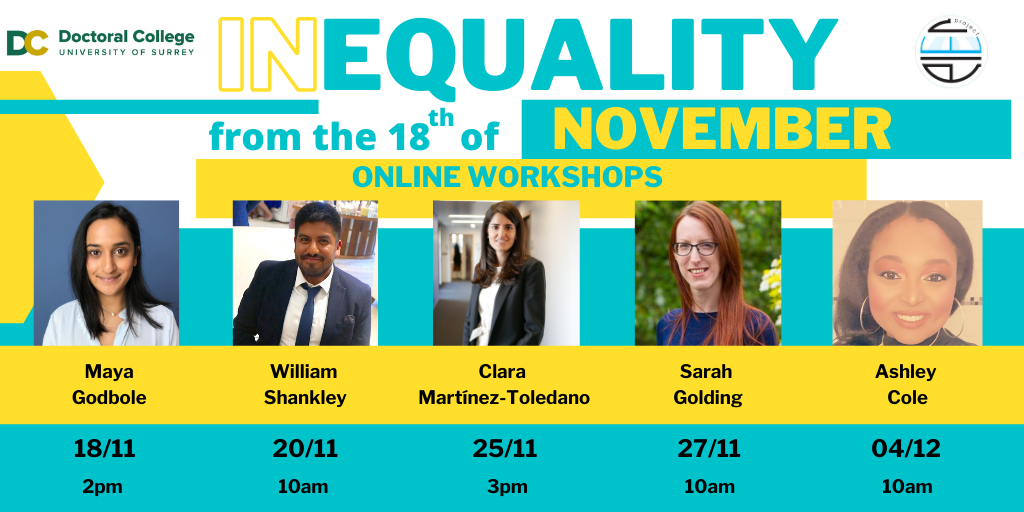An important part we as post-graduate researchers (PGRs) soon realise after starting a PhD is that the environment that we do research in moulds us and our research quite a bit. This is ‘Research culture’. At most universities and research institutions this is made of policies, guidelines and practises that researchers must follow in order to uphold and demonstrate high research integrity and rigour in their work. This is often supported by relevant training and development support for researchers and a community by and for researchers that comes together to share and inspire ground-breaking research.
At our university, PGRs, ECRs (Early career researchers like post-doctoral researchers, research fellows, and new members of academic staff) and members of the academic staff create this community. For me, the most immediate and impacting aspect of the research culture is the other PGRs, the research they do and the wealth of knowledge, enthusiasm and inspiration they bring to my work environment. It is the collective body of highly motivated, resilient and supportive peers who undertake rigorous research that helps me challenge my beliefs, knowledge and process of conducting research and recognise its impact on our lives.
The Doctoral College (DC) at the university has a leading role in supporting us PGRs and ECRs and building an environment that supports us through various pieces of training, events and opportunities that help us flourish. For example, the trained staff provide us guidance, feedback and support on writing a thesis, and career guidance and support such as Talent management and skills development for ECRs. As part of an overall initiative to improve research culture at our university, the DC runs Building Research Culture competition which invites applications from PGRs, ECRs and academic staff to bid for funding to host events to build and improve the research culture at the university. A group of us won this funding in 2020 to host an event.
I am part of a research group that was created by a group of PhD psychology students in 2019 who were upset with the rise of prejudice and inequality in the world, wanting to bring together like-minded individuals to make a difference. PIER as we call ourselves (Postgraduate Interdisciplinary Equality Research group) aims to assemble, discuss and act on issues of inequality with PGRs and ECRs of Universities in two domains – a) in their individual/collaborative research endeavours as members of this University and b) in their off-campus lives as members of a changing global, national and local community.
We proposed to hold a workshop that drives research culture in line with some areas that were identified as in need of improvement by the Wellcome Trust 2020 report, such as a researcher’s well-being and how if not supported compromises research integrity and innovation. We wanted to host an event in which the researchers can have a safe space to empower their agency and to influence research culture by taking responsibility for and shaping it.

In November 2020, we hosted five online workshops under the umbrella theme of inequality and we had a great turnout. It was a great opportunity for PGRs to meet each other and engage in discussion in a non-competitive and collaborative environment. We wanted to host a space that allowed people to speak freely, think creatively and more importantly, have an arena to fail safely, building our confidence to engage within the established research groups and community of the university. These workshops were free and open to PhDs and ECRs from Universities in the UK and abroad, and explored five topics of inequality: gender, ethnicity, income & wealth, health and race inequalities. We invited PGRs and ECRs doing research in these fields to host the workshops.
I enjoyed hosting and attending these workshops very much. The speakers did a fabulous job sharing knowledge, facilitating thought-provoking discussions and introducing practical ways to get involved in social action. These small-group workshops had enough interest from PGRs at our university and others in the UK. It was an informal setting that promoted interactions amongst young researchers and was a great start to our PIER ventures. The pandemic has slowed our plans a lot but we hope this platform will also promote collaborations, map research trends and share new publications within inequality. We’ve had a couple of researchers join us since the workshops. One of us is running a book club next week focusing on inequalities in higher education environments and another has undertaken online research on sexism with one of the workshop speakers. We hope to keep this going! 🙂
Sadhana Jagannath, PGR Psychology
